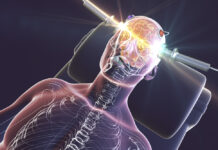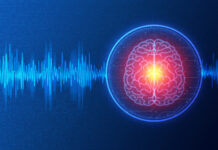
Nicholas Bakalar’s New York Times article, “ECT Can Be a Good Treatment Option for Serious Depression,” describes a study from Lancet Psychiatry that found patients in a large sample did not have serious medical issues within one month of receiving electroconvulsive therapy (ECT).
ECT is a psychiatric treatment that involves sending an electric current through the brain to induce seizures. Why this might help mental health problems is unknown.
Bakalar writes: “Electroconvulsive therapy, or ECT, can be effective for the treatment of major depression and is just as safe as antidepressant drugs combined with psychotherapy, a large new study concludes.”
The issue is this: that new study concluded no such thing. It did not compare ECT to antidepressant drugs plus therapy; it did not test the efficacy of ECT (against drugs, therapy, placebo, or anything at all), and it did not include any mention of the most commonly reported harms of ECT: memory loss and loss of cognitive functioning.
What did the study cover? The researchers looked at what they called “serious medical events, defined as those resulting in hospitalization or death.” They did not look for memory loss, loss of cognitive functioning, improvements in depression or other mental health outcomes, or quality of life, for instance. And they only followed the participants for 30 days after they had ECT, meaning that any health problem, or death, that developed after a month had passed didn’t count.
In this way, the deck was stacked in favor of finding that ECT was not followed by a high number of medical events.
In total, the researchers compared 5008 people who received ECT with 5008 people who did not. Each subject that received ECT was matched to one who didn’t by a propensity score consisting of health status, socioeconomic variables, medication, substance abuse, and other variables. All of the patients had a diagnosis of major depressive disorder or bipolar disorder.
In the end, 105 “serious medical events” were found in the ECT group and 135 in the non-ECT group.
The researchers also looked at deaths by suicide within that period (a secondary outcome that the researchers acknowledge should be taken with a grain of salt). There were very few: 5 in the ECT group and 11 in the non-ECT group.
The researchers claim that their study suggests that medical events following ECT are not a serious problem.
And in the New York Times article, Bakalar blames the “controversial” state of ECT—and the public’s reluctance to take the treatment—on movies like One Flew Over the Cuckoo’s Nest, which he suggests are “inaccurate portrayals.” But according to people who’ve actually had the procedure, that film is quite accurate.
I know what it’s like from my own experience receiving ECT 20 to 30 times in a state hospital when I was 16. Before ECT, I was given a muscle relaxant that paralyzed all my muscles without being put to sleep. I’ll never forget the excruciating pain and dreadful fear when I couldn’t breathe. Afterward, I didn’t remember many things. I’d lost some of my academic skills, had speech problems, and couldn’t stop thinking about what happened to me.
I’m not the only one. For instance, take this testimony from Linda Andre, given to the New York State Assembly during its investigation into ECT:
“I am a survivor of ECT. I had involuntary ECT, though not court-ordered ECT, and I had a fairly typical experience with it. By that I refer to the fact that I lost five years of my life, which were erased as if they had never happened…I have documented brain damage, including 38 points off my IQ, and I live with daily memory disability and cognitive disability that made it impossible for me to return to my career.”
And just like in One Flew Over the Cuckoo’s Nest, many people are given the procedure against their will, even to this day. Researchers in the UK in 2017 found that 38.7% of patients who received ECT had not consented to it. They also documented a lack of safety procedures and oversight in the facilities that administered it.
And there’s plenty of research to back me up, finding that memory loss and loss of cognitive functioning are incredibly common adverse effects after ECT.
A study from 2003, commissioned by the UK National Health Service, found that up to 55% of former ECT patients complained of long-lasting memory difficulties. Neuroscientist Peter Sterling testified to the New York State Assembly that “Virtually all patients experience some degree of persistent and, likely, permanent retrograde amnesia.” And the US FDA warns, in its section on neurological devices, that “the long-term safety and effectiveness of ECT treatment has not been demonstrated.” In that same section, the FDA also warns of burns, pain, fractures, delayed-onset seizures, heart problems, and death following ECT.
More recent research has also called into question ECT’s effectiveness. In 2020, a massive study of almost 15,000 ECT patients found that ECT does not decrease suicide risk. Another 2020 study found that there were only 11 studies that actually compared ECT against a sham (placebo) treatment; only four of those studies actually had positive results. And the studies suffered from methodological problems, including tiny sample sizes, potential lack of blinding and randomization, and even selective reporting of results.
According to those researchers: “Given the high risk of permanent memory loss and the small mortality risk, this longstanding failure to determine whether or not ECT works means that its use should be immediately suspended.”
And even ECT manufacturers have now included warnings that their devices may cause “permanent brain damage.”
Obviously, in his New York Times piece, Bakalar was trying to make a case for ECT. That much can be surmised from the title of his article, “ECT Can Be a Good Treatment Option for Serious Depression.” But he was dishonest and one-sided. He made false statements about the Lancet Psychiatry study, making it sound like the researchers compared the effectiveness of the treatment, or compared relevant adverse effect outcomes. But, again, the researchers did not. Theirs was a limited study that only really established that people don’t generally become hospitalized or die due to ECT within the first month.
Unfortunately, along with the falsehoods, Bakalar did not mention the plight of those who had poor, even tragic outcomes after ECT. It’s as if all those who suffered meant nothing. Some are so impaired they are forced to give up their profession or educational pursuits, and others with lesser impairment must struggle to fit in—just as I did.
Worst of all was the publication of false information about ECT in The New York Times, one of the most widely read and respected publications in this country and beyond. It is highly unethical for anyone to publish untruths about ECT, no matter how strongly they feel about it. It is the responsibility of journalists to report on the many studies, lawsuits, and patient reports of harms—not to blindly base an article on the word of a single study that didn’t actually assess most relevant outcomes.
Those who are depressed or have bipolar disorder, and their families and friends, are on the look-out for information that may help them. We will never know how many have been misled or harmed by Bakalar’s article in the New York Times. Yet we do know how dangerous spreading misinformation about a serious illness can be from the many who refused to get vaccinated against Covid-19 because of something they heard or read. It’s nothing to laugh about.















The regular and regularly misleading coverage of mental health issues in the NYT, Washing Post and on NPR–everywhere mainstream–is the most depressing thing to me, even more than the corruption of the medical profession and lack of equal protection I’ve received under laws that do exist to supposedly protect patients from psychiatric crime. Thanks for your piece. I hope the NYTimes read it. When it was published, I read in the NYT this piece you critique, so I am so glad to see your rebuttal at least here. Anyone could see that the piece did not take an objective look at the issue, did not talk to any critics, but your word as a pro counts, and should count to the NYT, too. Did you try to publish a rebuttal with the NYT, I wonder?
Report comment
I recently cancelled my long time subscription to the New York Times because of its extreme pro psychiatry bias. It is not the paper of record I grew up believing it was. It does not publish the truth, certainly not about psychiatry.
Thank you for this article. After reading it I did go to the Times article and left a comment telling part of my story about how ECT and other psychiatric treatments disabled me. I’m waiting for some replies telling me that I’m delusional or that what happened to me is my fault.
There are already so many pro Psychiatry comments in response to the article. The overwhelming feeling seems to be that if you have anything to say against Psychiatry you must be at Scientologist. There is one comment already saying that anyone commenting that they have brain damage as a result of ECT must be lying, because if they had brain damage how could they read a New York Times article and write a reply comment? Another commenter said, if you had ECT and you’re still alive then it kept you alive. How can anyone argue with that logic?!?
Report comment
I did, and they sent me an e-mail the very next day saying they weren’t going to publish it, and I was free to take it elsewhere, which I did.
Report comment
“The issue is this: that new study concluded no such thing. It did not compare ECT to antidepressant drugs plus therapy; it did not test the efficacy of ECT (against drugs, therapy, placebo, or anything at all), and it did not include any mention of the most commonly reported harms of ECT: memory loss and loss of cognitive functioning.”
“Given the high risk of permanent memory loss,” and that the primary actual societal function of the DSM “bible” billing industries, are the systemic covering up of child abuse and rape.
https://www.indybay.org/newsitems/2019/01/23/18820633.php?fbclid=IwAR2-cgZPcEvbz7yFqMuUwneIuaqGleGiOzackY4N2sPeVXolwmEga5iKxdo
https://www.madinamerica.com/2016/04/heal-for-life/
And these systemic child abuse and rape covering up crimes, of the “mental health professions,” are all by DSM design.
https://www.psychologytoday.com/us/blog/your-child-does-not-have-bipolar-disorder/201402/dsm-5-and-child-neglect-and-abuse-1
I’m quite certain the NYT’s promotion of ECT is to perpetuate the psychiatric, psychological, et al “mental health profession’s” ability to erase people’s memories of child abuse and rape. Despite the fact covering up child abuse and rape is illegal behavior.
But since covering up child abuse is the primary actual societal function of the “mental health” industries today. And the mainstream religions, who’ve “partnered with” the “mental health professionals” and social workers – like my childhood religion – have since been turned into systemic, unrepentant child abuse covering up religions.
https://books.google.com/books?id=xI01AlxH1uAC&printsec=frontcover&source=gbs_ge_summary_r&cad=0#v=
onepage&q&f=false
Gosh, and why do these industries want to erase our memories, or the medical evidence of the abuse of one’s child, that was eventually handed over? Since they’re all guilty of the systemic crimes of profiteering off of covering up child abuse, on a massive societal scale.
Shame on the NYT’s for supporting these systemic crimes of the scientific fraud based “mental health professions,” and their religious “partners.” An ethical pastor of a different religion did confess to me that these systemic crimes are known as “the dirty little secret of the two original educated professions.”
But I must say, shame on the “two original educated professions,” for running a systemic child abuse and rape covering up system, which is today’s, so called, “mental health industries.” Thus, of course, I stand 100% opposed to ECT, or any right to force treat anyone, by the scientific fraud based DSM “bible” billers.
Our society needs to start arresting the child molesters and child sex traffickers instead. Since our “mental health professions'” systemic covering up of child abuse, also functions to aid, abet, and empower the pedophiles and child sex traffickers. Leaving us all now living in a despotic “pedophile empire,” with child sex trafficking running amok.
https://www.amazon.com/Pedophilia-Empire-Chapter-Introduction-Disorder-ebook/dp/B0773QHGPT
https://medicalkidnap.com/2018/08/05/america-1-in-child-sex-trafficking-and-pedophilia-cps-and-foster-care-are-the-pipelines/
Report comment
Removed for moderation.
Report comment
Did the author of this article reach out to the author of the NYT article for comment? I hope so. He should know that his shoddy reporting is not going unnoticed.
Report comment
Duplicate comment
Report comment
I have been unimpressed with New York Times reporting on health issues in general, not just psychiatry. The reporters too often rely mainly on pharmaceutical company hacks so that they then exaggerate the benefits of drugs while minimizing safety issues. Frequently they don’t seem to know the difference between relative risk reduction versus absolute risk reduction, and their reverence for studies means they accept them uncritically. Bakalar is one of the worst, although what he did in this article seems to be a new low.
They sometimes have good health coverage, though Their coverage of the Alzheimer’s drug Aduhelm, for example, was excellent.
Report comment
As bad as the New York Times article are the comments on the article. Both prove that the news of the disastrous impact of psychiatric drugs and labeling and psychiatric treatment in general have not reached a wide audience. Beyond this website, the prevailing opinion is that there is no such thing as a psychiatric survivor. There is only someone who has had chance after chance after chance and has been given all the help in the world and has stubbornly refused to recover from their mental illness. There is only a non-compliant failure who is “thought to have poor judgment” by those around her. A person who gets asked routinely, have you hit your Rock bottom yet? A person who is left out of society and Spends everyday including holidays alone. A person that is now considered untreatable and very likely evil. One of the comments on the New York Times article said that whatever the effects of ECT, “it’s better than suicide.”. Clearly written by a person who has no understanding of how torturous a life after psychiatry can be.
Report comment
There is one odd truth to this article—that ECT is just as safe as anti-depressant drugs. Considering that both cause a significant loss of memory, it is easy to see that in relative means, they are just as safe or rather un-safe.
Once the New York Times was the great gray lady—well respected as the standard for the free press for the country and maybe even the world. That was once. Today, like so much of our mass media, they are basically bought and paid for by Big Pharma interests who do reap great financial and other “rewards” from psychiatry and other biased medical interests that do not necessarily benefit the reader. I would not waste my money on a subscription. Thank you.
Report comment
Thanks Michael,
Your a first class writer – very balanced and to the point.
I’m not a great fan of ECT. I can’t see electricity being good for the Brain.
I saw this one on the BBC Website today, regarding “Cyclothymia”
https://www.bbc.co.uk/news/newsbeat-59131799.amp
I don’t trust it!
Report comment
Why shock? One might as well use a hammer. Head trauma is effective treatment for depression. You should try it sometime. Brain damage causes bliss. Given enough knocks/shocks she or he forgot how miserable she or he was. Among other things. Stock in ignorance is soaring these days.
Report comment
Some people’s lives transform after they’re hit by a truck. Near-death experiences can be life changing! Maybe we can come up with a “treatment” that involves killing someone and bringing them back to life! Very New Age!
Report comment
Actually, that is what these “psych drugs and therapies, etc.” did to me—they provided me with a “near drug experience” I didn’t actually die. It would hard to prove that someone really tried to kill me. And, it wasn’t New Age at all! Imagine that throughout a certain amount of years that you have been drugged so much, you can not be awaken, not even by someone screaming your name. That is what happened to me. And, it was life changing! In that by about two years later (I guess I am a slow learner) I finally walked away from the “psych world.” Why? Because I wanted to live and to have a better quality of life. It’s not always easy. I must endure odd “symptoms” and of course, the “brain damage” but I am alive—which is the exact opposite of “psych world” in which I would be “really dead” or one of the “walking dead” So, Steve McCrea, being hit by a truck might not be the “modus operandi” but similar things do happen and the cause is, of course, the “psych drugs and therapies, etc.” Thank you.
Report comment
Injured race horses are treated better. How do I shut down and not feel to protect myself from all this pain? (NOT SEEKING ADVICE)
https://www.nytimes.com/2021/11/03/business/media/new-york-times-3q-earnings.html
More people are reading lousy coverage of psychiatry making my plight, maybe yours too worse, more hopeless.
Report comment
The coverage of psychiatry, “mental health/illness”, “treatments, therapies, and their psych drugs, etc.” has been slanted towards psychiatry, etc. Much of it has to do with where they get their money. As for me, I realize that. It does NOT! make my plight more hopeless, because I do not have a plight. It is tragic and reflects how much of the mass media lacks a moral conscience. It also reflects their lack of desire to investigate the truth. But all this lousy reporting, etc. is on them, not us. Always remember, it is them, not us. I may not be rich or famous, but my fortunes do not rise nor have never risen on the ignorance of mass media. Thank you.
Report comment
Besides brain damage from a voltage thousands of times of what a “normal” brain runs on.
The heart can stop from ECT.
Imagine you as a doctor want to administer medicine after the heart stops, how will it travel through the body? The medicine can not leave the site you injected it into, such as the arm because there is no pulse.
Google “asystole in ECT”, they treat it like it is nothing. “In all, 65.8% of patients experienced asystole at some time during their course of ECT. “
Report comment
There are so many things wrong with the study design– as described, I didn’t read it– and the article that it’s hard to know where to start, but yet another risk factor I observed myself as a clinician that this study didn’t track: Risk of accident after the procedure.
Shortly after I was licensed, I treated one patient who had been given ECT after a cycle of non-response to multiple SSRIs and polypharmacy. Patient was totally unreachable after these treatments, completely numb, great difficulty with attention and maintaining a train of thought, which I reported to the psychiatrist. I was very worried about this patient just being out in the world, afraid they could get lost even as a pedestrian, let alone driving, and patient lived alone, had no one to look after them. No change in treatment plan.
Anyway, patient didn’t show up one day when they’d had ECT earlier in the morning, turned out they had a car accident that was absolutely caused by inattentiveness. Talked to the psychiatrist, reviewed the type of accident — a U turn or left turn directly in front of another car, obviously caused by cognitive impairment = no change in treatment plan.
One of the most depressing cases I’ve ever worked on.
Report comment
Man, that IS depressing!
Report comment
Removed for moderation.
Report comment